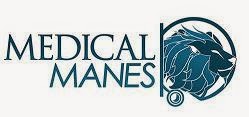Quarantine instructions by... Isaiah 26:20
Go, my people, enter your rooms
and shut the doors behind you;
hide yourselves for a little while
until his wrath has passed
Oh, how things can change in a short time!
Just a while ago our government was recommending Bill C-7 proposing to remove the requirement for a "reasonably foreseeable natural death" to qualify for "MAID" (medical aid in dying).
See article below (WWW.carenotcuts.ca): Concerned Ontario Doctors.
"Canada’s initial euthanasia legislation was passed in June 2016. In 2017, Ontario had become the only jurisdiction in Canada and the entire democratic world to violate physicians’ fundamental freedom of conscience despite it being protected under the Canadian Charter of Rights and Freedoms, the United Nations Universal Declaration of Human Rights and the Declaration of Geneva. The International Code of Medical Ethics demands a physician practice his or her profession with conscience and yet, Bill C-7 does not contain any conscience protection for physicians.
The amendments proposed by Bill C-7 have been tabled even prior to the commencement of the 5-year parliamentary MAID study. No jurisdiction in the world with legalized euthanasia has moved this quickly towards a state of unrestricted euthanasia. In 2016, Canada’s government failed to first pass legislation for the right to palliative care and assistance to live with dignity, as exists in other jurisdictions with legal euthanasia. Canada is the only nation with legalized euthanasia under a socialized single-payer healthcare system. Canadian governments have failed to plan for its rapidly growing and aging senior population: Its healthcare system is in crisis. Hallway medicine has become the norm, more than 85% of Canadians do not have access to essential palliative care, more than five million patients do not have a family doctor, and patients are suffering and dying on multi-year wait-lists for specialists.
Bill C-7 proposes to create two tracks and would remove the existing key criterion for a “reasonably foreseeable natural death”. The legislation follows a 2019 Quebec court’s decision in Truchon and Gladu. However, advocates for people with disabilities, including the Council of Canadians with Disabilities and the Canadian Association for Community Living, have said the court decision was discriminatory and sent the message that "having a disability is a fate worse than death". They urged the Trudeau government to appeal the Quebec court ruling, which it declined to do."
The Bill further proposes to remove many existing safeguards that serve to protect vulnerable Canadians, including decreasing the number of witnesses required for a MAiD request to one individual, the removal of the ten-day reflection period and the allowance of advanced consent. The Canadian government has also signaled its intention to allow for further expansion of euthanasia for children and mental illness, possibly as early as next year.
Despite protests to the contrary, as I blogged previously, once descent of the slippery slope begins it quickly gains momentum. (Free fall in a vacuum will accelerate at approximately 9.8m/s2). It doesn't take the politicians and their satraps long to realize that the 'MAID' program liberally applied will result in huge financial savings to the health care system, since the elderly consume a great amount of the health care resources. With the predilection of the coronavirus to obliterate the elderly, the accelerating drift into a geriatric demographic could be reversed. Governments are well aware what that would save the declining health care system.
Failure of preparedness for the catastrophic situation that exists now is partly due to lack of insight and unwillingness to invest adequately in the safety of health care professionals. This impairs the efforts of those with the expertise to deal with the crisis. The pre-occupation of our Prime Minister with 'virtue-signalling' by sending sixteen tonnes of facial masks and other protective gear to China as the present international coronavirus cataclysm was gaining increasing momentum left Canadian health care providers unprotected and vulnerable. Other protective measures for health workers have also been ignored.
We expect a great deal from our health care providers. They expose themselves to considerable risks on our behalf, the least we can do is stand up and demand they have state of the art protection so that they can continue to look out for you. Call your local MPP and tell him/her that's the least you expect.
We expect a great deal from our health care providers. They expose themselves to considerable risks on our behalf, the least we can do is stand up and demand they have state of the art protection so that they can continue to look out for you. Call your local MPP and tell him/her that's the least you expect.
